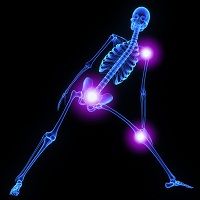Article
DMARD-Free Sustained Remission in Rheumatoid Arthritis with Early and Intense Treatment
Author(s):
Rheumatoid arthritis therapy that focuses on early and more intensive treatment produces DMARD-free sustained remission, according to findings from researchers at the Karolinska Institutet.

Treatment with disease-modifying anti-rheumatic drugs (DMARDs) can give rheumatoid arthritis (RA) patients an even higher chance of remission, according to research published in the Annals of Rheumatic Diseases.
Researchers from the Karolinska Institutet in Sweden observed more than 1,000 RA patients who were diagnosed between 1993 and 2011 in order to investigate if the occurrence of RA is promoted by treatment and if DMARD status reflects resolution of symptoms and disability. The patients were recruited from the Leiden Early Arthritis Clinic and their DMARD status was evaluated.
The researchers organized the patients into 3 categories based on their treatment regimen and when they were diagnosed with RA. Patients who were diagnosed between 1993 and 1995 were initially treated with non-steroidal anti-inflammatory drugs (NSAIDs), and patients diagnosed between 1996 and 1998 used mild DMARDs. The patients diagnosed in 1999 and onward were treated with methotrexate. The patients treated from 2005 and beyond were treated based on their disease activity score (DAS).
The researchers determined there were 155 patients who achieved DMARD-free sustained remission. There were several treatment strategies significantly associated with achieving remission — specifically, earlier and more intensive treatment regimens.
“More intensive treatment strategies increased the chance for DMARD-free sustained remission, indicating that RA chronicity can be influenced,” the study authors wrote. “Patients with RA achieving DMARD-free sustained remission have a normalized functional status.”
According to the researchers, early methotrexate patients and DAS determined therapy patients generally performed well. Those patients’ Health Assessment Questionnaire scores were similar to the scores of the general population at the time of remission, the researchers found. In those patients, symptoms such as morning stiffness, fatigue, pain, and disease activity were also demonstrated to be minimal.
“We know that patients who are diagnosed and treated within a 3 month window do best — before their joints have been damaged by their disease – so this research confirms these earlier findings,” commented a spokesperson for Arthritis Research UK in a statement. “However, patients with very severe disease may find that DMARDs are not sufficiently effective and they need to go on to a biological therapy in order to get their RA under proper control.”




